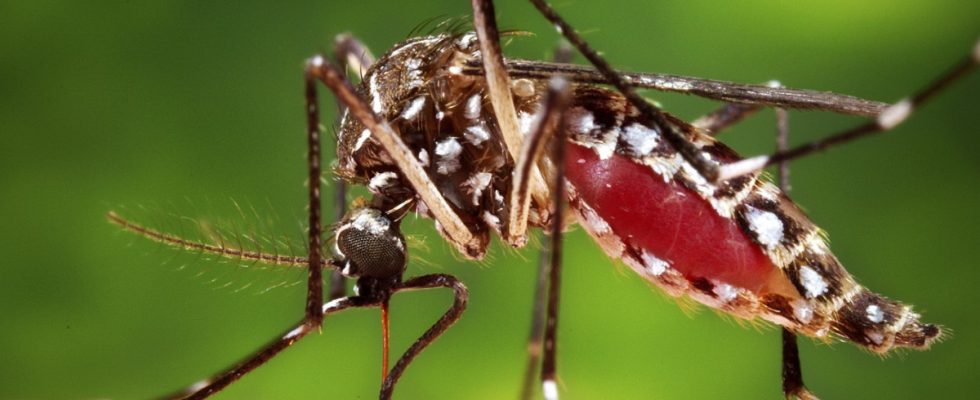Aedes albopictus appeared for the first time in Munich in 2019: the Asian tiger mosquito that comes from Korea. She may have nice stripes, but she’s a nasty nuisance. The diurnal mosquito can transmit pathogens of diseases such as the Dengue, Zika and Chikungunya viruses to humans and can survive for a very long time on moist ground. Requirement: It has to be nice and warm.
The tiger mosquito is therefore widespread in Italy and France. Populations can also be found in Austria, in Germany, according to the National Expert Commission “Mosquitoes as vectors of pathogens”, in Baden-Württemberg along the Rhine and also in Berlin. In Bavaria there is already an established population in Fürth.
Due to climate change, Munich’s summers have also become warmer – and the tiger mosquito now finds it quite pleasant in the state capital. One reason for the Munich Health Department (GSR) to intensively continue the tiger mosquito monitoring that was established immediately after the first discovery in Munich. The GSR has now presented results and further measures to the Health Committee.
“Mosquito monitoring with a particular focus on the Asian tiger mosquito was expanded last year because the tiger mosquito is expected to spread due to climate change,” says the third mayor, Verena Dietl (SPD).
Finds are counted at eight locations in Munich using tiger mosquito traps, for example at train stations or allotment gardens. According to GSR, 15 specimens fluttered into the traps around the Hackerbrücke.
Because, as entomologists know, the mosquitoes mainly come into the country via container routes, railway lines are often found. So far, no tiger mosquitoes have been discovered at the other Munich locations.
The locations cannot cover the whole of Munich. The GSR has therefore called on citizens to catch suspicious mosquitoes and report them to the Bavarian State Office for Health and Food Safety or the so-called Mosquito Atlas who will identify and map the insects. The health department included this data in the count. A total of 25 Asian tiger mosquitoes were recorded last year.
All finds were analyzed and – if necessary – measures were taken at private sites. Because mosquitoes love water, it is important to cover rain barrels and regularly empty the drip trays for plants, watering cans or bird baths.
“Everyone can help to prevent tiger mosquitoes from settling,” says health officer Beatrix Zurek (SPD). At breeding sites that were found in the area of the sewer system or on sewage gullies and were not so easily accessible, specialist companies were deployed on behalf of the GSR to apply active ingredients that prevent the tiger mosquito larvae from further development.
Aedes albopictus is not yet dangerous in Munich. There are still no known transmissions of pathogens. According to Zurek, panic is “absolutely unnecessary.” Munich started monitoring early and, according to the health department, is “well positioned”.
Although 52 vacationers were infected with dengue fever in 2023, not in Munich, but in typical endemic areas such as Southeast Asia or Africa.
The health department wants to continue and further develop the monitoring in 2024. The Munich population should also be better informed about the black and white striped mosquitoes through flyers and on the Internet so that they can better identify breeding sites. The aim is to slow down the spread of the tiger mosquito – in order to gain time for the development of possible vaccines.

